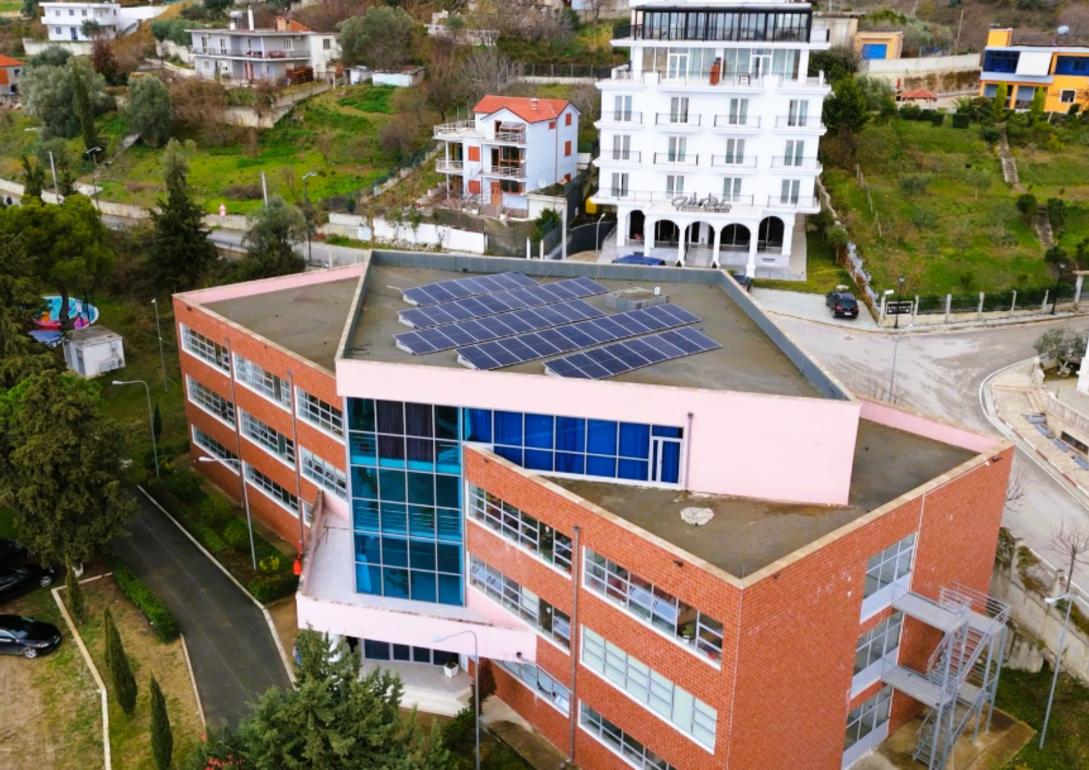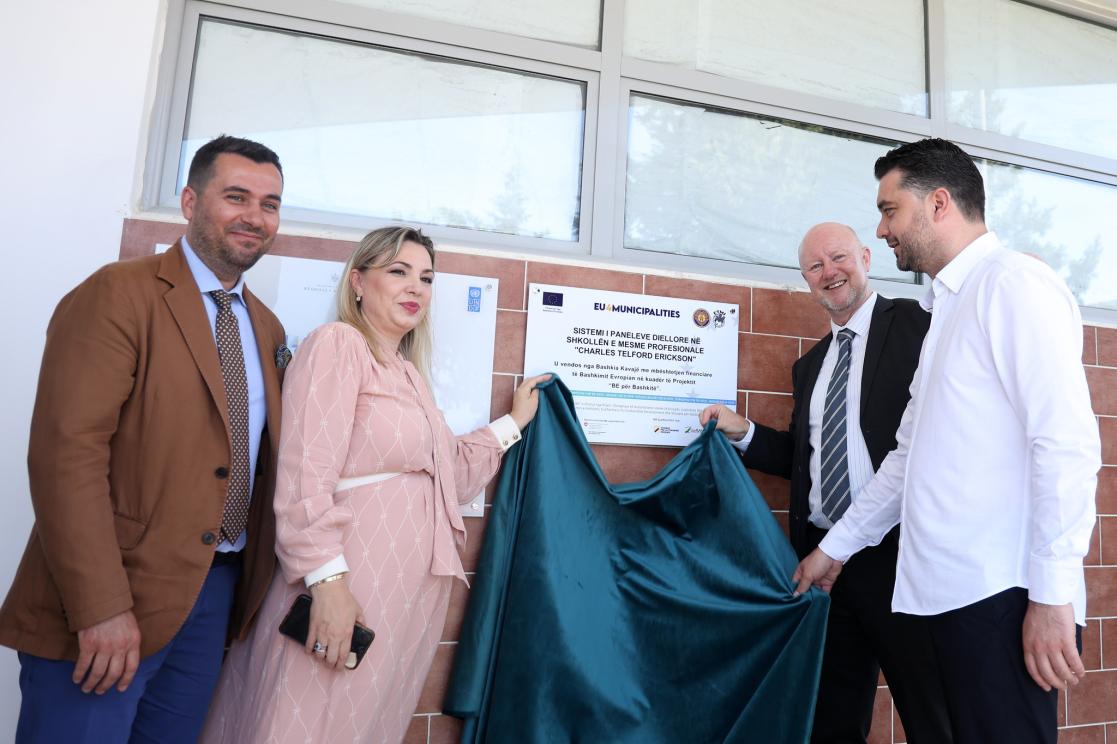Solar panels and energy efficiency, how EU4Schools and EU4Municipalities are rebuilding environmentally friendly schools

“I was surprised to learn how solar panels can change our approach to the environment and our economy. I didn’t know that solar panels can not only justify the acquisition costs, but their use is also eco-friendly. We can have a small positive impact on countering climate change, and this is important”, says Marinela Tafa, a 17-year-old student from “Charles Telford Erickson,” high school in Kavaja.
She is one of 23 school students who participated in trainings and workshops on renewable energy systems and savings in energy consumption. While the building was reconstructed thanks to the support of the EU4 Schools programme, EU4Municipalities supported the installation of solar panels on the terrace of the agricultural vocational education school “Charles Telford Erickson”, inaugurated few weeks ago.
The school director, Matilda Çanaku, explains that solar panels will reduce the facility’s energy consumption by 90%. “Until now, almost 20% of our annual budget was spent on energy. After installing solar panels, we will spend less energy and less money on energy, using the budget for other needs at school”, she says.

EU Delegation to Albania
“The installation of solar panels at the vocational high school in Kavaja will cover about 90% of the school's energy needs or around 450,000 Lek/year in monetary values. The amount of carbon dioxide reduced by the installation of solar panels will be 12 tons of CO2 per year,” according to the calculations of Meivis Struga from the Environmental and Territorial Management Institute (ETMI), an organization that stands for sustainable development and environment.
170 school students and teachers directly benefit from this energy efficiency initiative in Kavaja, creating new paths towards the future sources of energy. The project contributes to improving municipal services through advancing the EU green agenda, and tackling climate change in the municipality of Kavaja.
“By embracing these advancements, not only we mitigate the environmental impact but also pave the way for economic growth and societal well-being. Local governments play a pivotal role in this transition, as they oversee a significant portion of emissions and have the power to implement impactful policies. Globally, according to recent studies, local governments are responsible for up to 70% of global greenhouse gas emissions and can potentially reduce emissions by 19% through effective climate actions and energy efficiency measures", emphasizes Elton Stafa from the EU4Municipalities programme in Albania.
The Head of Cooperation at EU Delegation to Albania, Hubert Perr, highlighted that the project has been a unique opportunity to engage with students and farmers on raising awareness and building skills on renewable energy systems, smart irrigation, and water management.
“It contributes to the development and implementation of the Green Agenda of the Municipality, reducing carbon emissions, providing a healthier environment for the communities and reducing municipal spending for energy, to be transformed onto strategic and sustainable development investments”, he added.

EU Delegation to Albania
While, this is the only school to be equipped with solar panels from the EU4Municipalities programme, all 63 schools reconstructed by the EU4Schools programme have been designed with the aim to prioritize energy efficiency.
“This includes the application of high-performance materials to ensure energy-efficient facilities. Such materials include double-glazed windows and LED lighting for both indoor and outdoor systems, as well as energy-efficient heating and cooling systems. Additionally, all buildings with a high demand for hot water, such as crèches, kindergartens, and dormitories, are equipped with solar panels for hot water supply. Some facilities are also equipped with photovoltaic (PV) panels for energy production, while most other facilities have installations ready for future PV panel installation,” says Sokol Mucogllava, Senior Engineer for the EU4Schools programme.
BACKGROUND INFORMATION
EU4Schools
“EU4Schools” is a Programme funded by the European Union in response to the recovery process following the earthquake of November 26, 2019. The Programme is being implemented by the UNDP, in cooperation with the Albanian Government. It aims to support Albanian citizens in eleven affected municipalities, namely: Kruja, Durrës, Kurbin, Kamza, Kavaja, Tirana, Mirdita, Lezha, Rrogozhina, Shijak, Vora in the area of education. More than 60 Education facilities are targeted by the Programme, with almost more than 1 million people benefiting, from which, 24 000 are students and teachers.
EU4Municipalities
EU4Municipalities is a project funded by the European Union which aims at fostering municipalities’ development potential and improving the socio-economic and environmental conditions of local communities in Albania. It supports the development of local infrastructure by providing better public services and sustainable local economic development. Additionally, one of the objectives of the project is to support strategic processes and enable local government actors to mobilize resources to implement their plans and strategies, by prioritizing the development of local communities, improving governance and thus the quality of life of citizens. This programme is implemented jointly with NALAS, Co-PLAN, SDC.





